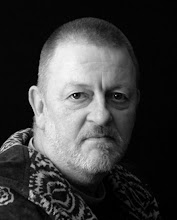One in 10 pre-schoolers may be suffering mental illness

Picture taken 16 Nov 2005, 5:28pm.
So reports, Adrian Angold, associate professor of psychiatry at the Duke University Medical Centre in North Carolina. It was once thought mental illness was triggered by growing up and therefore a problem encountered during adulthood. Prof. Angold said yesterday he was, 'genuinely surprised' that the study had shown the same rate of mental illness in preschool children, as young as two to five, as in older children.
I love stuff like this. Whilst the language of modern psychiatry or psychology was not around when I was young, I vividly remember the terror and fear that surrounded my growing up. The disabilities I have lived with all my life now have a language that I clearly understand and with which I am able to articulate the problems I live with. What amazes me is that psychiatry is only just now discovering this!
It is amazing how many problems do not exist until some expert says they do. It is also amazing how much we are still ruled by paternalistic attitudes where individuals are not believed until some expert makes the astounding discovery that a problem exists.
Incredible, too, is that so many problems are called mental illness when they are not that at all. To be mentally ill one must have a disease of the brain of some form or another. And whilst it has also been shown that the brain is affected by harsh words and treatment in childhood this is a far cry from the brain being diseased. It seems to me that it is perfectly reasonable to have a fully functioning brain and yet to experience dysfunctional activity within the brain. In this case mental disturbance might be a far better term than mental illness.
But, of course, it is a sign of our times that things must be cast as dramatically as possible in order to have credibility and, indeed, stand some chance of a little help. I am not sure this isn't a part of the victim mentality that surrounds so many of the problems people encounter these days, like alcoholism. As an alcoholic I will never believe it is a disease, it is certainly a problem related to all sorts of life issues, but a disease? I think not.
In ten years time an expert will discover that unresolved problems in childhood can lead to alcoholism in later life, as can any unresolved chronic problems, but then I am not a scientific expert, just an alcoholic.


1 Comments:
I have thought the same things as well, how something is not a problem per se until some expert makes up a label for it.
I have a relative born around 1920, who was labeled a 'tom boy' as a girl. She loved baseball and played street ball with her brothers and boys in the neighborhood. She dropped out of school and became a factory worker. She had a 'man-like' job, steady employment at the same factory, which she held until she was too ill to work, sometime in her 70s. She dressed in male factory workers clothing. She was never involved in a romantic relationship but had many friends. Until her admittance into a nursing home she lived an active life and lived alone.
Would someone call her 'gender confused'? Some today may call her 'butch' (as she visually fits the stereotype) or wonder if she is a homosexual.
Everyone accepted her for who she was, a loving and kind person. Period.
To our knowledge she never sought counseling or saw any pyschologists or psychiatrists, but I bet if she had, she'd have had a label put on her. She may be labeled as gender confused or possibly even recommended for a sex-change operation!!
The latest trend in American schools is to label children as "auditory processing disorder". One child I know was tested and labeled that. Point in fact was that the mother found out that the private school ($20K per year for first grade) was not even giving one on one reading instruction. All they did was "explode the code" phonics workbooks which, if you haven't seen them, show a child-drawn simple picture then has two sentences, the child circles the sentence that tells of the picture. By one word guesses a child can pick the right sentence. Also let's remember there is a 50/50 chance to get it right. So a score on the paper doesn't necessarily say whether the child can read all the words in the sentence. Also this boy was unable to count to 100 and could not tell what came before the number 75 and after it, in a fill in the blank type of question. They sais he had auditory processing disorder. There was nothing wrong with him. They pulled him out of that school, the mother also found out they were teaching one grade level above so that the students could be said to be advanced (even though some weren't learning). They put him into a school which uses learning styles as a basis. He also got some private tutoring and did learn to read and count. What he needed was more one on one time. (As a side note mom could have done that tutoring but she didn't want to do it, she said she'd rather pay $75 per hour to a tutor than to do it herself).
Anyway back to APD, they are telling parents this is when the child hears spoken directions or information but can't process it and 'doesn't get it'. However this is a catch all thing, in my opinion. A relative was told she has it when she was not practicing reading at home and neither parent reads anything, ever. She was just behind in reading as she never practiced it, wasn't doing the homework practice, and didn't get any positive influence from her mother or father to read. She was pushed to watch television and DVDs (and given a TV in her own room at age 6), and pushed to sports and to start cheerleading at age 7.
Post a Comment
<< Home